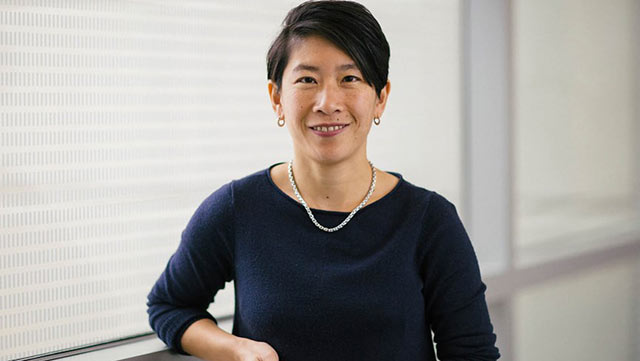Northwestern University chemist Teri Odom has received the 2020 Centenary Prize from the Royal Society of Chemistry.
The prestigious award, given annually to three chemists outside Great Britain, recognizes scientists for high-impact research and exceptional communications skills. The award comes with a £5,000 cash prize, a medal and an invitation to give a series of lectures in the United Kingdom.
Eric Anslyn of the University of Texas at Austin and James Tour of Rice University also received the Centenary Prize this year.
An expert in designing structured nanoscale materials, Odom received the award for her research into multi-scale materials that enable new ways to achieve ultrafast, coherent and directional light emission at the nanoscale.
“I’m very grateful to have received this award, not only to join the impressive ranks of previous recipients but also because of the breadth and inclusiveness of chemistry featured,” Odom said. “The celebration of a broad range of chemistry — that can also be clearly communicated — is pretty special and, at least to me, emphasizes the forward-looking nature of this award.”
Odom is the chair of Northwestern’s chemistry department and the Charles E. and Emma H. Morrison Professor of Chemistry in the Weinberg College of Arts and Sciences. She also is a member of Northwestern’s International Institute for Nanotechnology and the Chemistry of Life Processes Institute.
Odom’s research focuses on designing structured nanoscale materials with extraordinary size- and shape-dependent properties. She has pioneered a suite of multi-scale nanofabrication tools that have resulted in nanoparticle lattice optics that can manipulate light at the nanoscale, plasmon-based nanoscale lasers that exhibit tunable color and anisotropic nanoparticle probes for imaging.
Odom is a member of the American Academy of Arts and Sciences and a fellow of the Royal Society of Chemistry, the American Chemical Society, the Materials Research Society, the American Physical Society and the Optical Society of America. She is currently the editor-in-chief of Nano Letters.


